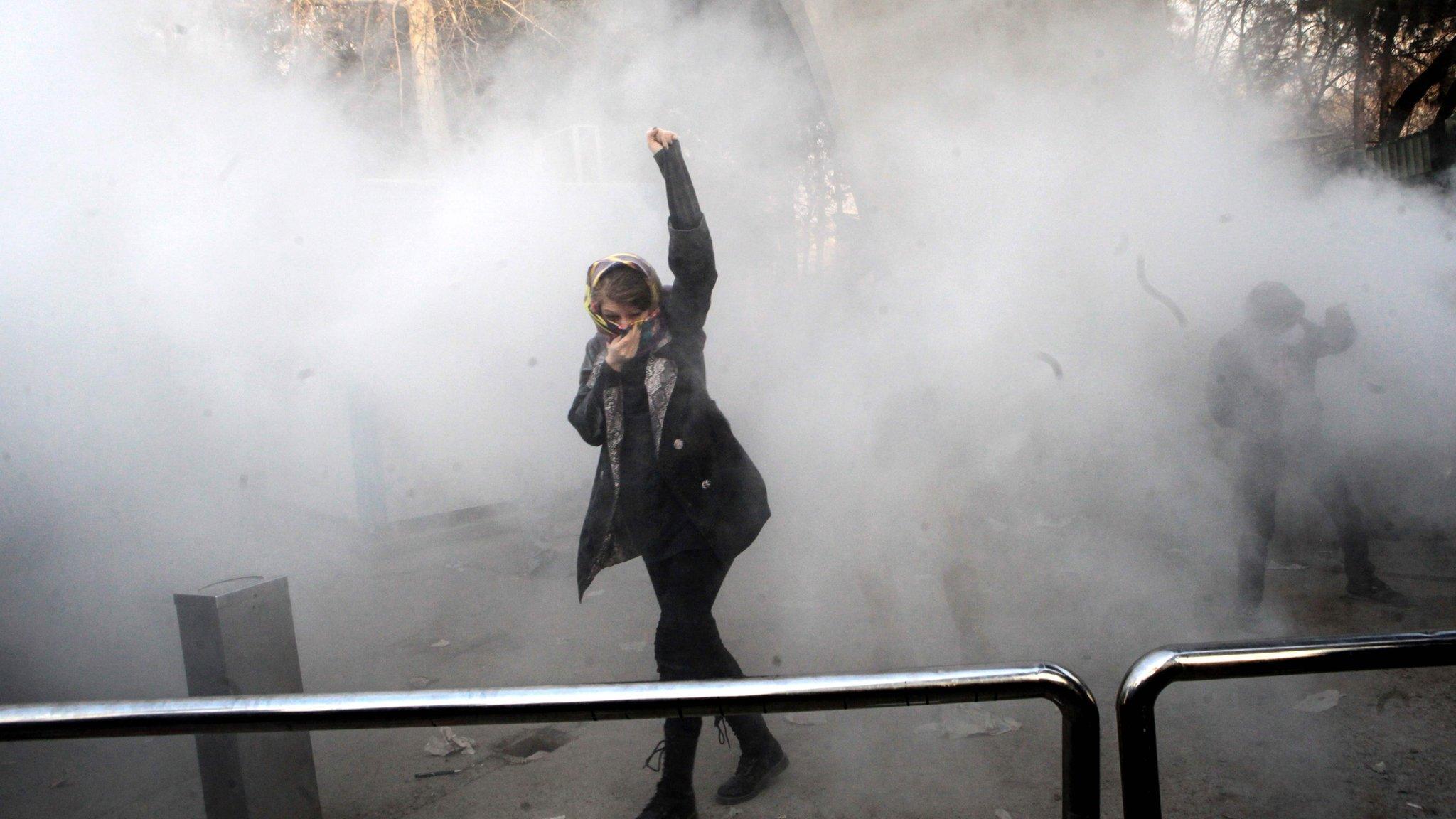Iranians launch banknote protest to get round censorship
- Published
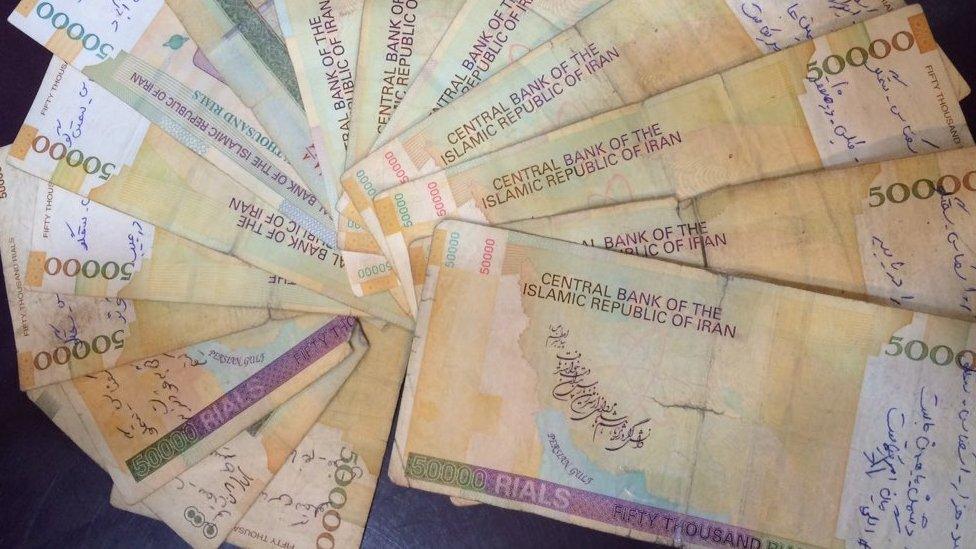
A group of Iranian Twitter users are spreading protest messages by writing slogans on banknotes.
"Banknotes are our un-censorable messengers," one user wrote, referring to a rumoured plan to permanently block the popular messaging app Telegram, which is by far the most popular digital communication tool in Iran.
Slogans included "I am an overthrower".
Some of the sayings were originally chanted during mass anti-establishment protests at the turn of the year.
In late December, demonstrators took to the streets then to express their dissatisfaction with the social and economic situation in the country.
Telegram was believed to have been the main platform people used to obtain and share information about the protests, which took place across Iran from late December 2017 to January 2018.
Nearly 8,000 tweets have been posted since 28 April under the hashtag #Onehundredthousand_talking_banknotes in Persian, according to BBC Monitoring. Most posts are aimed at raising awareness about the new online movement.
Other messages read: "Our enemy is right here, they say it's America".
Most tweets were posted anonymously, making them hard to independently verify.
Twitter is officially banned in the country, although Iran's Supreme Leader, president and other officials have active accounts. People can access the site by using proxy services.
One account, @Iran_white_rose, described the banknote campaign as a "bridge between social media and society", external and an act of "civil disobedience".
Another, going by the name of @N_a_r_r_a_t_o_r, published a photograph of a note featuring a drawing in tribute to the recent "Girls of Enqelab (Revolution) Street" movement against the compulsory wearing of the headscarf, or hijab., external
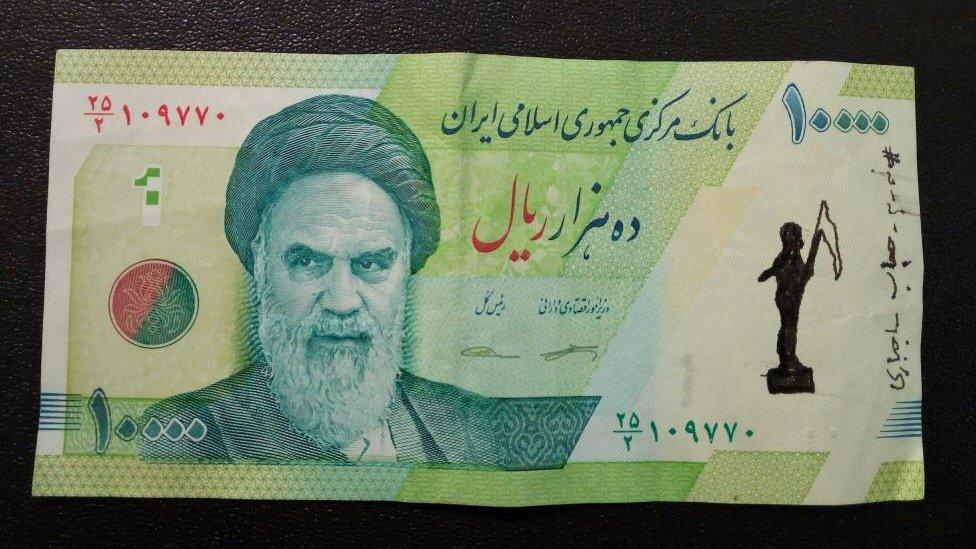
One note posted showed a drawing of a protester objecting to the compulsory wearing of hijabs
Last week Supreme Leader Ayatollah Ali Khamenei, shut down his Telegram channel, saying that this would help "safeguard the national interest". BBC Monitoring reports that this move was widely seen as a precursor to an outright ban.
Around 40 million Iranians - half the population - use the Telegram app.
Government workers and officials have been told to stop using it.
Authorities have been encouraging citizens to instead use a homegrown alternative, called Soroush.
Telegram was also recently banned in Russia after the company refused to hand over encryption keys to the authorities.
Correction 30 April 2018: An earlier version of this story mistakenly said a drawing on a banknote showed a protester wearing a hijab, rather than protesting against the compulsory wearing of hijabs.
- Published25 April 2018
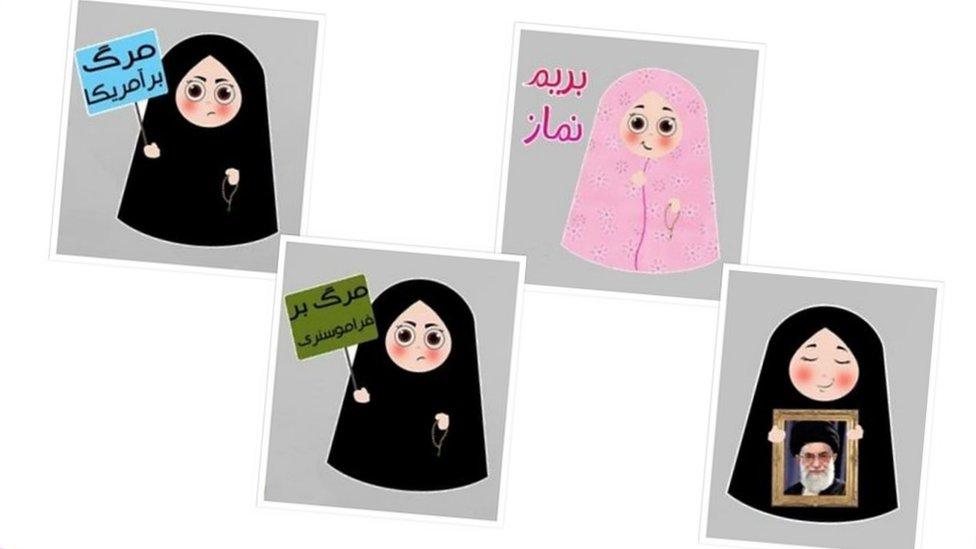
- Published8 March 2018
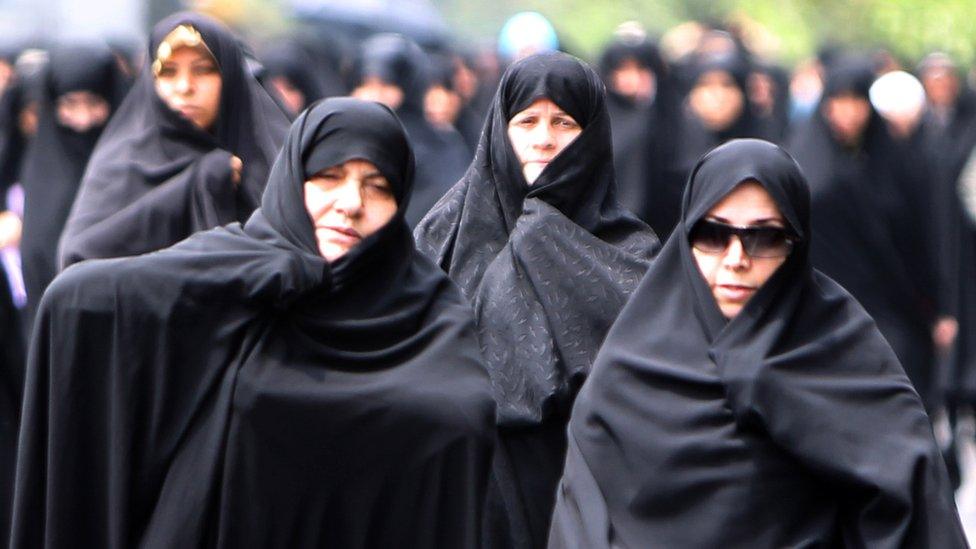
- Published2 January 2018
